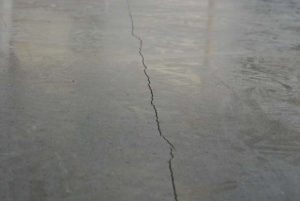 Everything can break or get damaged. Not even homes are safe from the general laws of physics that state that everything that is doing mechanical motion will eventually experience wear and tear.
Everything can break or get damaged. Not even homes are safe from the general laws of physics that state that everything that is doing mechanical motion will eventually experience wear and tear.
One of the most common issues that plagues houses is water leakage. Not even new homes are safe from this problem. Since most houses have done their water’s pipelining through thick slabs, in order to conserve space, and look good, sometimes the slabs can start “leaking”. This is a phenomenon where the pipe through which water is passing through has a leak somewhere, and the water gushes out and splashes onto the slab.
This is very dangerous, so we have written a guide on concrete slab leak detection. Without further ado, let us begin:
Wet or very moistures carpets
If you have covered thick slabs on the floor with carpets, there are ways to detect water leakage through that too.
Lift up your carpets, and if you see excessive damp coloured slabs or even hints of the carpet being wet, maybe it is time to get your concrete slab checked for water leakage.
If you want to repair this issue yourself, excavate the slab up to 1 m2 and then cover up the pipe location where it seems to be leaking. Alternatively, you can try replacing the pipe itself. Be sure to turn off the house’s water supply beforehand though.
Cracks in the slab
Even though slabs are hard materials, even they can break when water continuously hits them. You have seen the phenomenon of big rocks breaking when tides of water keep hitting the rock, right?
If you start seeing cracks in your slab, get a professional’s help. Do not try to repair it on your own, as the water might be gushing out very strongly.
Water heater leakage
If you use a water heater in your home, be sure to periodically check if any water is leaking from below your water heater. If this is happening, open up the access panels and you will see what’s wrong with the heater.
Generally, the issue is with water leakage. Hire a professional to fix it for you.
High water meter readings & bills
If you’re getting exceptionally high water bills even though you are not using water very much, high chances are that water is leaking from your building.
Turn off every faucet and water heater, and check if the water meter is still moving. If it is, don’t hesitate to call a plumber and check what’s wrong.
Noise of water even after everything turned off
If you keep hearing water gushing out, even after everything has been turned off, the issue is probably with a water leakage.
You can try re-routing the water’s channelling pathway or just simply try asking a plumber to do that for you.
With these methods, you can successfully do concrete slab leak detection without needing much effort at all. If you’re still paranoid that something is wrong with your water supply, a professional’s thorough checking might help you clear your mind.
